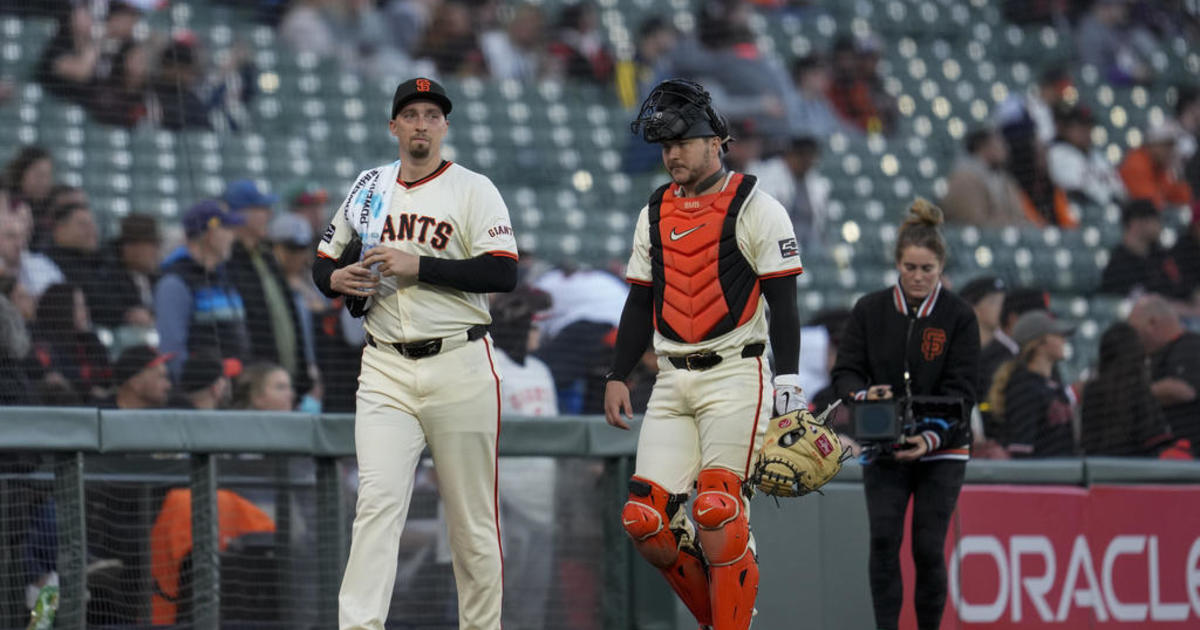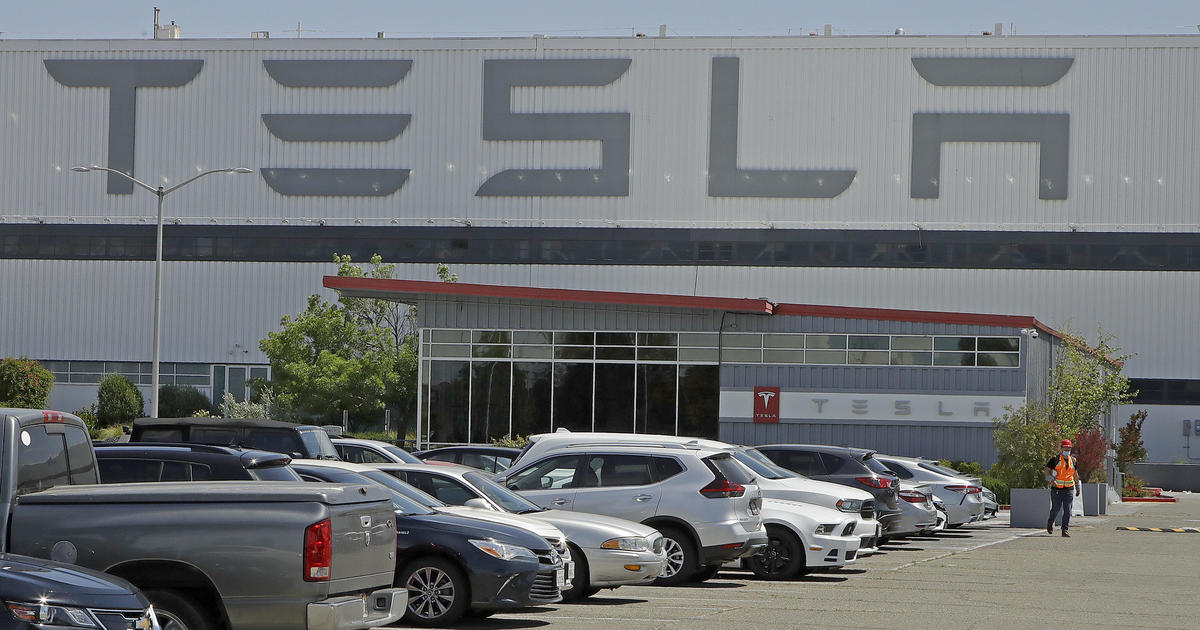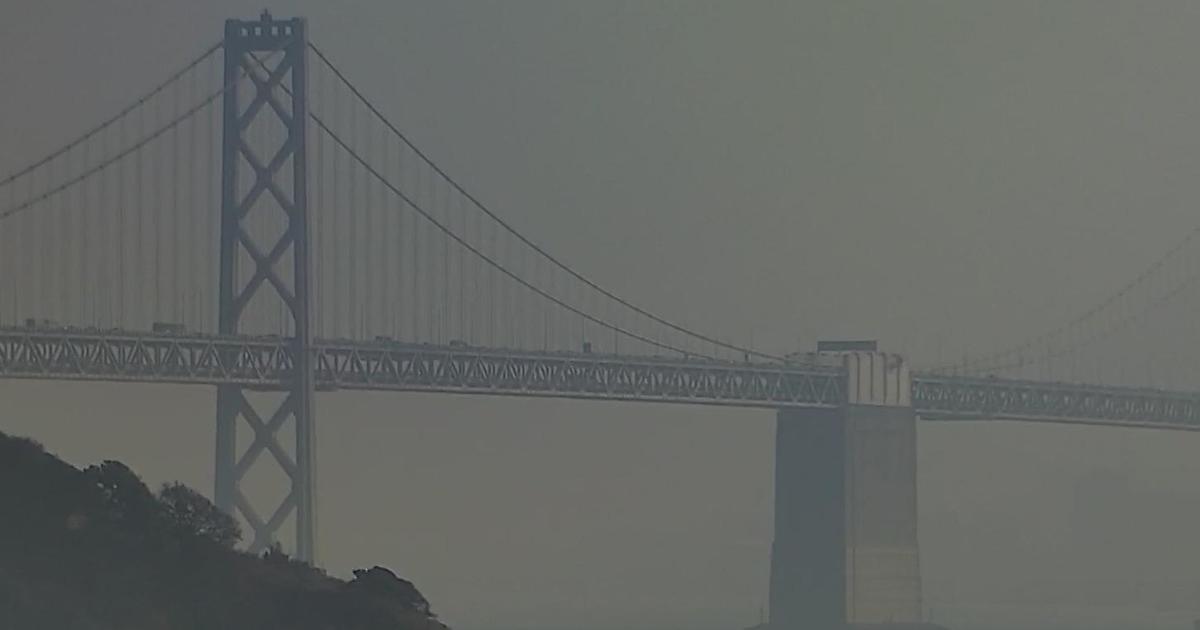COVID Pandemic Update: Anticipated Thanksgiving Surge Underway; State Slips Under 15 Percent ICU Capacity
CBS San Francisco Staff Report
SACRAMENTO (CBS SF) -- The much anticipated surge of new cases from Thanksgiving gatherings and travel has begun, Gov. Gavin Newsom and state public health chief Dr. Mark Ghaly revealed Monday during a COVID-19 update, taxing ICU capacity for treatment of the critically ill, particularly in Southern California.
Newsom last week set a mandated level of 15 percent ICU capacity as the point at which any of the five hospital regions of the state would need to impose strict new health restrictions on local residents and businesses to slow the surge in new cases.
Overall, the state was at 14.2 percent ICU capacity on Monday, Newsom said. Southern California at 10.9 percent and the San Joaquin Valley at 6.3 percent were the individual regions that have now tumbled well below 15 percent. In those regions, restaurant dining is banned, beauty and barber shops closed, bars shuttered and other businesses dramatically impacted.
"We know that these various restrictions are a hardship for people," Ghaly said. "It's not what we expected at this time of year, but we know some of them are required to make sure we get through the surge as quickly as possible and saving as many lives and preventing as many infections as we possibly can."
"The vast, the overwhelming, majority of Californians are in this new stay at home order protocol," Newsom added. "We've had many conversations gaming this out based upon the facts. The facts determined the when. The facts will ultimately determine on engagement with local health officers on the how."
Over the last 72 hours, California is averaging more 25,000 new cases a day. The positivity rate has soared from 3.4 percent on Nov. 7 to 8.4 percent on Monday.
With the surge has come mounting pressure on medical care facilities, particularly when it comes to staffing. The state has reached out to medical personnel contractors, hoping to bring in hundreds of additional nurses and medical support staffers from outside the state by next week.
But the surge is not just happening in California, it is underway across the country. Competition has grown fierce for those contract valued staffers.
"Fundamentally, staffing is going (to come down to) human resources," Newsom said. "(It is) going to be the most challenging, not just for Californians, but for every state. How we get enough people who are not fatigued, not exhausted."
The rush for testing in California as well as the rest of the nation is also straining the system. In Riverside County alone, Newsom said, there were almost 300,000 tests done in a 24-hour period.
"You seeing what we experienced months ago," Newsom said. "You are starting to see testing backlogs now across the country."
Ghaly warned it could get worse. Hospitalizations of those stricken by the virus is up 72 percent over the last 14 days to more than 10,000 statewide. And now comes the Thanksgiving surge.
"We know that those cases that occurred around people's dinner tables or activity and plans, travel through Thanksgiving are going to show up right about now," he said. "Maybe the last couple days we are seeing that, but we know we'll be seeing that for many days to come...We believe that the levels of transmission that we have been reporting so far will likely continue to go up some particularly because of those activities around Thanksgiving."
While the San Francisco Bay Area was at 25.7 percent ICU capacity on Monday, health directors from Alameda, Contra Costa, Marin, Santa Clara, San Francisco counties and the city of Berkeley already have preemptively put into place the tough new restrictions on local residents and businesses.
The measures went into effect on Sunday night for nearly all those areas, with Marin County imposing them on Tuesday.
For many Bay Area businesses, the newest round of restrictions stretching through the Christmas and New Year holidays, may be the final fiscal strain in the wake of months of economic challenges presented by the COVID outbreak, forcing them to close their doors for good.
Among those feeling the strain is Eric Nielsen of San Jose's Fifty Five South Restaurant. He tried to stretch every dollar coming in as time counted down to Sunday's shutdown.
"I was telling my staff it's like a last chance gas station, you've got to get your fill up now, otherwise there's not another stop on the highway for a while," he told KPIX 5. "Have some good food, have someone serve you and take care of you. More importantly have someone do the dishes for you, last chance this year."
Among those who are shutting their doors was San Francisco's iconic dive bar -- Lucky 13. On Sunday, long-time patrons made the trip to the Market Street watering hole for one last call.
"It's Official, this Sunday will be Lucky 13's last day, Ever," the staff posted on Instagram. "Thank you again for your continued love and support."
A social media poster with the handle clairewaterman17 summed up the thoughts of many when recalling the impact the cash-only punk bar had on their lives.
"My husband and I had our first date at Lucky 13. And it's where we continued the party after our wedding. I have a picture of walking through the place in my dress. We are sorry you are closing! You will be missed!"
While several Bay Area counties had put the restrictions in place or had them scheduled to go into effect, San Mateo County officials have chosen not to issue a shutdown order.
Town restaurant in San Carlos was buzzing with activity Sunday evening. Tables on both sides of Laurel Street were full. Avenir Restaurant Group Owner Greg St. Claire told KPIX 5 he was grateful for each night it can stay open.
"Just for my small company, every extra week that we have means $400,000 in sales, which translates to almost a quarter million dollars in labor and tips for our employees," said St. Claire. "And at this time of year, it's just critical."
Newsom also unveiled another tool to fight the spread of the illness. California will be rolling out a voluntary smartphone app later this week to alert people if they spent time near someone who tests positive for the virus.
The tool, which uses Bluetooth technology to exchange random codes between phones, was developed in partnership with Google and Apple and piloted on the campuses of the University California, San Diego and the University of California, San Francisco.
State officials vow that the tool protects users' data privacy and does not reveal a user's identity or location.
"Throughout this pandemic, we have tapped California's talent pool to fight this virus and that includes working with tech innovators like Apple and Google," Newsom said in a news release. "The process is private, anonymous and secure, and is one of the many tools in the state's data-driven approach to help reduce the spread."



